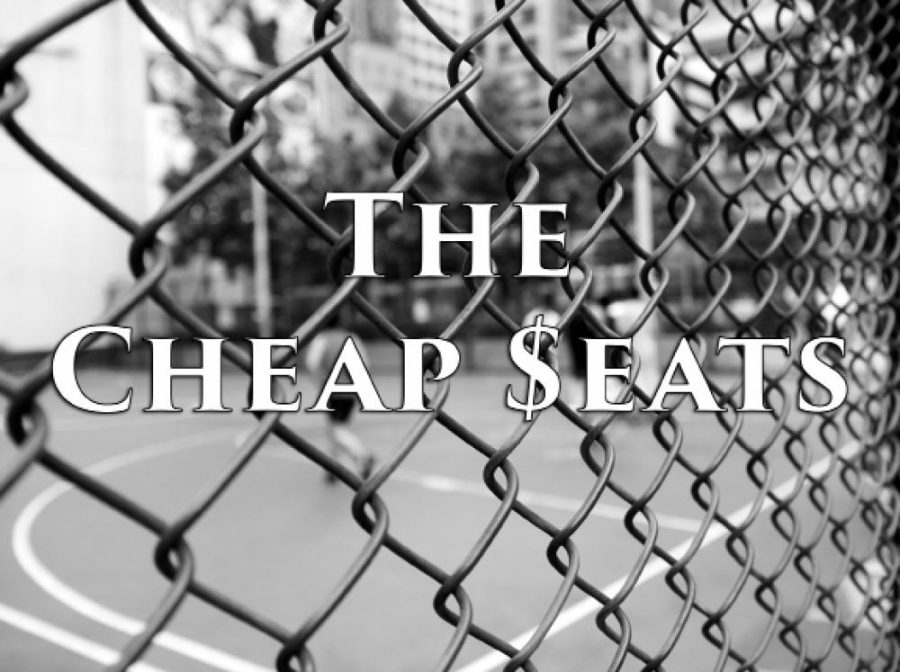Extremist fans pose the greatest threat to sports
You can find fans who support a team at any level of athletic competition. It’s one of the things that makes sports great, people supporting something together.
But there’s also a dark section of fan bases in sports, a chunk of people whose unwavering support go far beyond human decency and morality. This fan group isn’t exclusive to one team or one sport either. Avid, aggressive fans across all sports, go so far as to defend and justify unconscionable actions by athletes.
The most recent example came on Aug. 16, when the Philadelphia Eagles traded for wide receiver Dorial Green-Beckham, who was accused of domestic violence in college. Ben Natan, who writes for the sports news site SB Nation, wrote about the Eagles’ numerous additions of players who had been accused of domestic abuse, made it much harder to support the team.
The piece, which was posted on Bleeding Green Nation, an affiliate of SB Nation, also criticized the team for putting potential performance on the field over actions off of it. But Natan’s piece exposed an even greater issue with the responses it received.
On Twitter, responses from Eagles fans ranged from “jeeze, Cover Notre Dame if you want to cover choir boys” to people who suggested Natan should be fired. On BGN, fans excused Green-Beckham’s alleged actions with comments that ranged from “It’s shocking that occasionally a man paid to be violent will, one-time, take out emotion-fueled aggression on a female” to “it was four stairs.”
There should be anger and criticism directed towards the Eagles, but an even greater problem has been exposed. Fans who publicly excuse, are willing to look past and even soften violence against women.
It doesn’t take much just to be disturbed when you read about an incidence of domestic violence. Morality and human decency is all you need to know domestic abuse is disgusting, but some fans easily look past it because an athlete wears the jersey of their favorite team.
But this expands to other sports, and gets even worse as demonstrated by how some Chicago fans responded when Julie DiCaro reported on rape allegations against a star player for the Chicago Blackhawks.
DiCaro, who is an anchor on Chicago’s sports radio station “670 The Score”, investigated and reported on rape allegations against hockey player Patrick Kane.
She received numerous threats on Twitter that ranged from, “You need to be hit in the head with a hockey puck by one of the Blackhawks and killed” to multiple threats that people would find her and rape her, according to USA Today.
When Jameis Winston, a star quarterback at Florida State University was accused of rape in 2012, the story was reported on by multiple local sports writers. That included Matt Baker, who wrote for the Tampa Bay Times
After his coverage ended, Baker wrote about the repeated death threats and accusations he received. Some told him they wanted him to “die of a brain-eating cancer”. Others accused that Baker slept with the accuser, according to The Tampa Bay Times.
Regardless of whether or not those threats would be carried out, they came from a place of hostility and hatred towards someone who they perceived threatened a player from their favorite sports team.
This is an even greater issue than professional sports teams that look past domestic violence or sexual assault when they sign a player or professional sports leagues light discipline for players who commit acts of violence.
Fans willfully ignore morals, human decency and integrity, because it gets in the way of support for their teams. Social media has provided a platform for these people to share their views, release their anger and unleash hatred.
Thus, the biggest problem comes to light. If there are fans across all sports that threaten reporters for just doing their jobs, what would these fans be willing to do to accusers and what wouldn’t they do if they saw their favorite athlete committing domestic violence or rape?
Their words are meant to incite fear, which they hope results in silence. Silence from reporters who might be fearful for their lives and their families lives if they investigate rape allegations and fear for the victims who are assaulted or raped and fear what might happen to them if they report what a star athlete did to them.
Sports has a problem and it’s the fans who will do or say anything to protect players from their favorite team. Before we can even turn our attention to the decision makers in sports, we must find a way to stop the radical fanatics.

